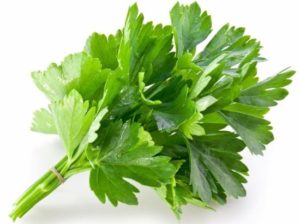Cilantro and coriander are the names used in the United States to describe two different parts of the same plant, Coriandrum sativum. It’s an annual herb, which means it blooms and must be replanted yearly. Cilantro is used to describe the green, citrus-flavored leaves. Coriander is the common name for the plant’s light brown seeds, which are dried and used as a cooking spice.
Contents
Uses
- The herb parts (leaves, root, and stem) of the cilantro (coriander) plant have been found to have antiseptic and carminative properties.
- The herb contains many phytochemical compounds; phenolic flavonoid antioxidants like quercetin and essential oils have found application in many traditional medicines as an analgesic, aphrodisiac, antispasmodic, flatus-relieving (carminative), depurative, deodorant, digestive, fungicidal, lipolytic, stimulant and stomachic. (Medical-disclaimer).
- Coriander seed oil has been found application in many traditional medicines as an analgesic, aphrodisiac, antispasmodic, deodorant, digestive, carminative, fungicidal, lipolytic (weight loss), stimulant and stomachic.
Benefits
Antioxidant Support
Cilantro has strong antioxidant activity.
Promotes Heart Health
Cilantro may help prevent cardiovascular damage.
Provides a Mood Boost
Cilantro has been shown to promote calm feelings.
Promotes Normal Blood Sugar Levels
Some studies report that cilantro encourages normal blood sugar levels.
Supports Restful Sleep
Cilantro may help improve sleep quality.
Supports Healthy Cells
Coriander seed oil possesses antioxidant properties that may reduce oxidative stress.
Encourages Fungal Balance
Research conducted by The Dental School of Piracicaba in Brazil reported that cilantro oil has potential against an oral form of the candida fungus.
Fights Harmful Organisms
Cilantro has demonstrated neutralizing activity against several types of harmful organisms.
Encourages Brain Health
Cilantro may help support neurological health by discouraging oxidative stress.
Promotes Normal Fluid Balance
Coriander seed encourages normal fluid balance and urine flow.
Supports Bone Health
Vitamin K supports healthy bones, and eating even a small amount of cilantro provides the recommended daily serving of vitamin K.
Nutritional Support for Eye Health
Cilantro contains nutrients, including vitamin A, which support eye health.
Natural Food Preservative
Cilantro leaves and coriander seed are used to produce essential oils that act as natural food preservatives.
Cautions
Not known.
Other Names
coriander (fruit), chinese parsley, culantro
References
Source: Nutritionandyou, http://www.nutrition-and-you.com/cilantro.html
GlobalHealing Center, http://www.globalhealingcenter.com/natural-health/health-benefits-of-cilantro/

